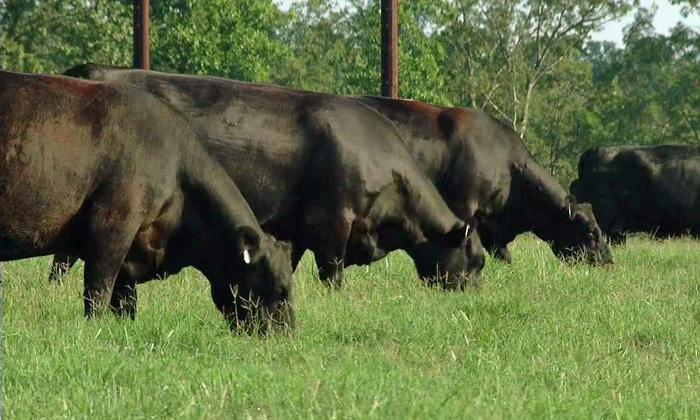I killed a cow today; its blood is still on my hands.
Oh yes, I justify this by telling myself that it is for my family’s sustenance.
We do that. We justify what we do to live with ourselves.
Cows have a bad reputation right now, but it is not completely their fault.
You see, cows burp and fart a lot, and those burps contain methane gas which according to the scientists is one hundred times more potent as a greenhouse gas than carbon dioxide. What is not commonly understood is that methane only lasts a short time in the atmosphere; about 12 years. So if the number of beef animals is constant, the levels of methane will not go up but will be approximately constant. New methane replaces methane that breaks down after about 12 years.
Another factor in favor of the cow is that the carbon emitted in the methane (CH4) is new, recycled carbon from plants, not fossil carbon. A well grazed cow will enhance the soil that it is on and sequester carbon because typically cows are on perennial grasses which are very effective at sequestering carbon.
There are also two sides to the grass fed vs. feedlot cattle debate. We take cattle off grass and put them in feedlots where we feed them with grains which cost a lot of greenhouse gases to grow, process and deliver. Then the cows burp and fart out methane and we have all their excrement to consider as well. In my opinion, this is a bad system from the start. Grass fed beef however emits about 20% more methane than grain fed beef.
Additionally, cows’ get a bad rap because their digestive systems are very inefficient. It takes 12 pounds of feed to get one pound of beef. Chickens are much more efficient at 2 pounds of feed for one pound of chicken.
The above arguments on both sides of the debate are based on critiquing each component separately. Another way of looking at the role of the cow in a mixed farming system will restore the cow’s much maligned reputation. So yes, cows emit methane, but they make up for it by contributing significantly to the rest of the farm. Cows can convert otherwise inedible (to humans) plant materials into nutrient dense, healthy human food. I indicated before that cows are inefficient in food conversion; 12:1 but the good news is that the other 11 parts are plant food. This plant food, retained on the farm, reduces or eliminates the need for greenhouse gas intensive chemical fertilizers. Cows in rotation with crops will eat even the weeds turning what was a liability into an asset. Farmers that rotate cows with their crops can reduce and even eliminate the need for pesticides, further reducing their carbon footprint.
I like cows and will defend them and their valuable role in agriculture. I will continue to eat beef but I resolve to eat a bit less. I will try to ensure that the beef I eat is grass fed. It is probably good for me.




